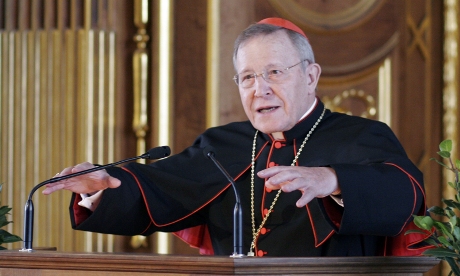Pope Francis wants to create a “listening magisterium”, says German Cardinal Walter Kasper.
Speaking at a conference in Washington, DC, Cardinal Kasper said Francis wants to retool the Catholic hierarchy.
This will result in a hierarchy that not only defines and enforces Church teachings, but also listens and responds to how laypeople understand God’s will.
The concept of “sensus fidei” – the capacity of individual believers and the Church as a whole to discern the truths of faith – are important to Francis, Cardinal Kasper said.
That concept, Cardinal Kasper said, “was emphasised by the council . . . [but] Francis now wishes to give it complete meaning”.
“He wants a listening magisterium – that makes its position, yes,” the cardinal said, “but makes its position after it has heard what the Spirit says to its churches.”
“Catholicity includes … all,” Cardinal Kasper said.
“Women and men, young and old, clergy and laity. The laity are not only recipients, but also actors. Not only objects, but much more, subjects in the Church.”
Cardinal Kasper, who is a former president of the Pontifical Council for Promoting Christian Unity, also spoke at length about ecumenical dialogue.
He called for a “down-to-earth ecumenism” that is not limited to academic theological discussions.
But even after decades of work, Cardinal Kasper said, the ecumenical dialogues are at a perilous point.
“Agreement is nowhere in sight,” he said.
“This situation is extremely dangerous. If we are not in agreement of where we are and going, there is a great danger that we will disperse in different directions.”
“The great expectations following the council have not been followed,” he said. “We are at a standstill.”
“An ecumenism of love, of encounter, of listening and friendship are what is needed.”
Cardinal Kasper also touched on the so-called “hermeneutic of continuity”, which stresses that Vatican II did not repeal earlier Church teachings or traditions.
“The hermeneutic of continuity must – for the sake of the future, the sustainability of Christianity – always be a hermeneutic of reform,” he said.
Sources
